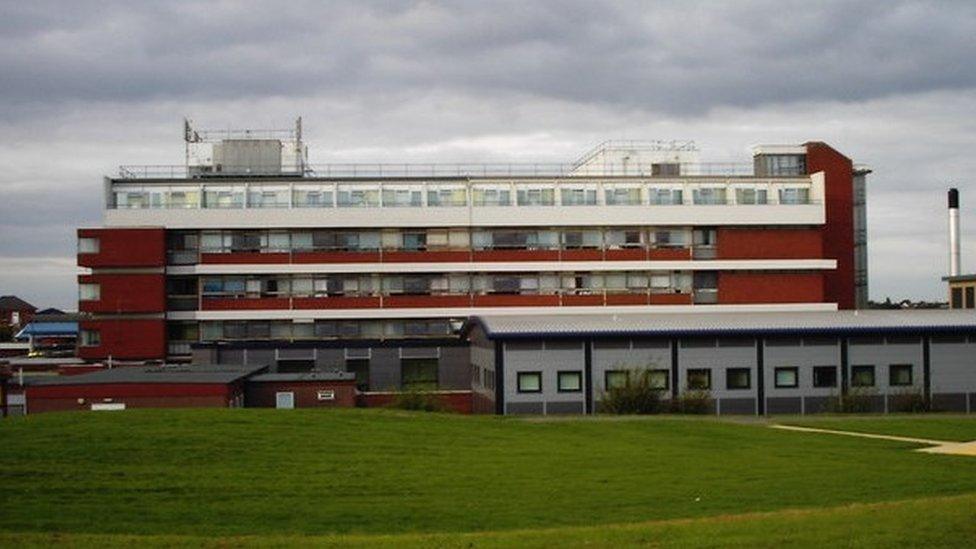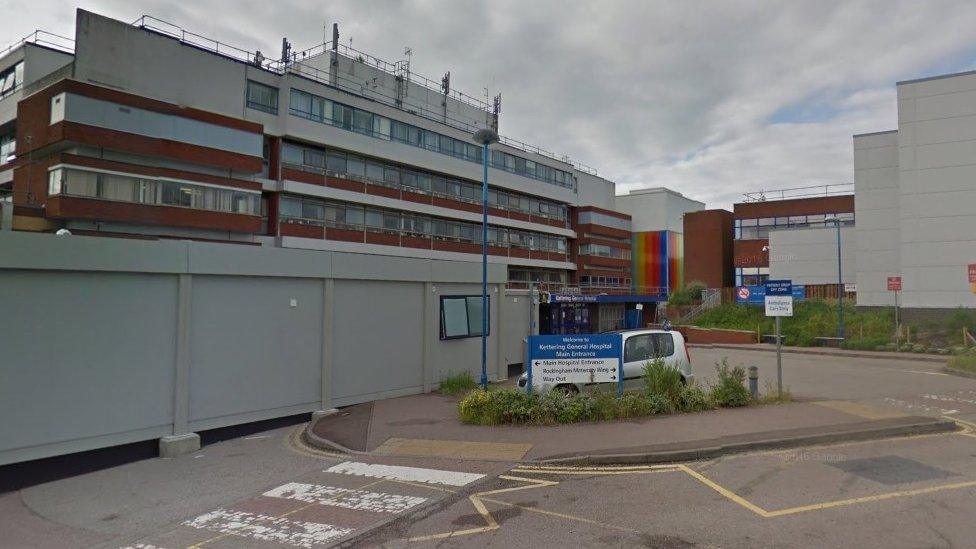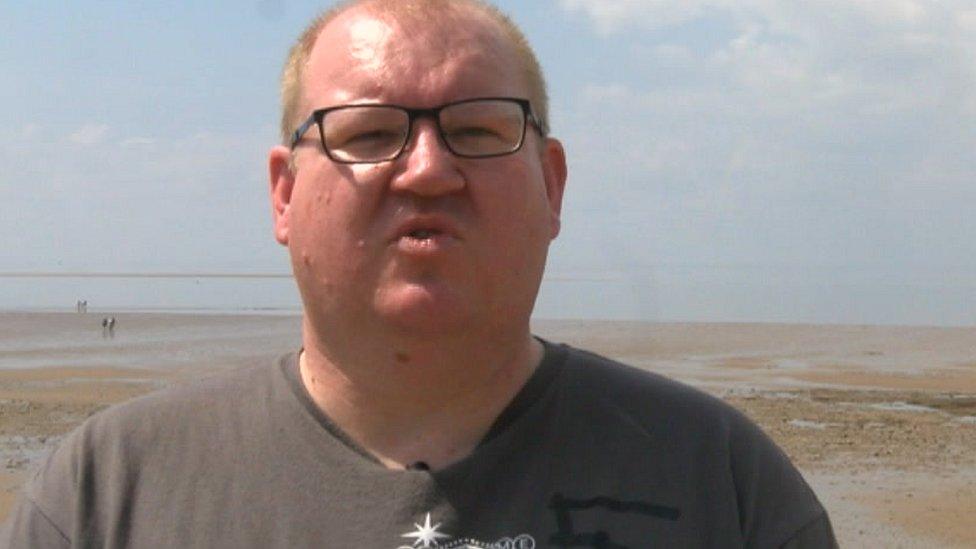Police looking at claims of data 'fiddling' at hospital
- Published

Whistleblower David Phelan claimed Kettering Hospital covered up waiting times to avoid being fined
Claims a hospital's waiting time figures were 'fiddled' to meet targets have been passed to police.
It follows a BBC investigation into alleged misconduct at Kettering General Hospital which left thousands waiting over a year for treatment.
The trust which runs the hospital denied manipulating data but apologised for losing track of patients.
Northamptonshire Police said it had not yet launched a full investigation but was evaluating evidence.
A hospital review found that 138 patients were harmed by the delays, including one patient who has lost their sight.
The hospital is still trying to clear the backlog with 260 patients waiting for their operations after more than a year.
In a statement, a police spokesman said: "An allegation of potential misconduct at Kettering General Hospital has been made to Northamptonshire Police and we are in the process of scoping that allegation.
"It would therefore be inappropriate for us to comment further at this time."

The trust which runs the hospital apologised for losing track of patients but denied data was manipulated
Last week, David Phelan, a hospital trust governor, claimed patients were removed from waiting lists because national targets were being missed.
Mr Phelan, who raised concerns under whistleblowing procedures, was working as associate general manager in the trauma and orthopaedics department when he discovered discrepancies in the data in October 2015.
Since then another whistle blower has contacted the BBC claiming similar concerns about the waiting lists were not properly handled.
The hospital has defended its whistleblower policy.
Kettering General Hospital Medical Director Professor Andrew Chilton said: "I categorically deny at any time has data ever been manipulated to try and make us look as if we were in a better position.
"When the problem started to emerge around 2015 we immediately dealt with the problem. We worked very openly and transparently with both our commissioners and GPs and regulators."
- Published26 May 2017
